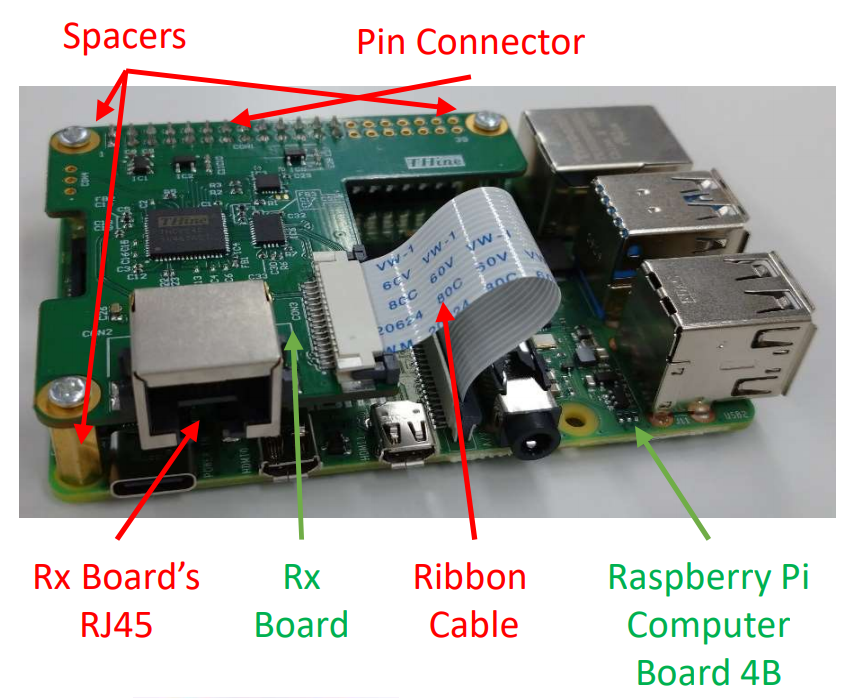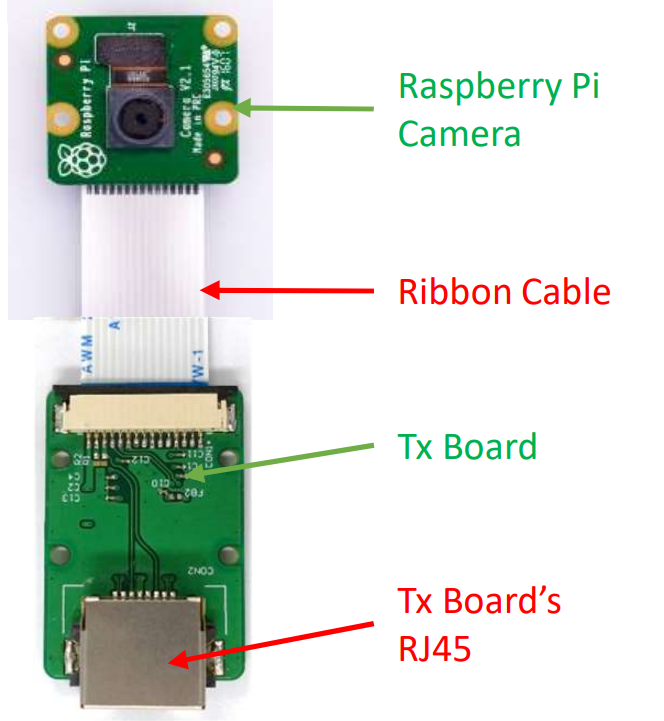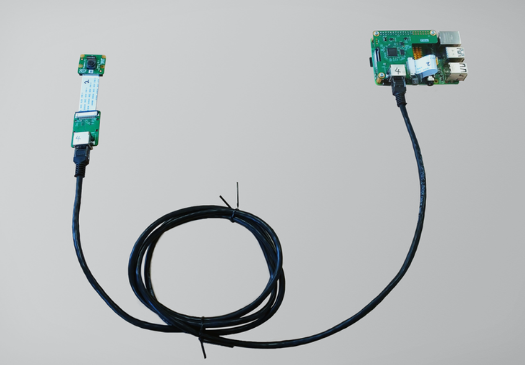Camera Extension Aims To Get Your Raspberry Pi Camera Closer To the Action
Extend your camera's possibilities
The official Raspberry Pi camera now comes in many forms, including the HQ camera, which offers interchangeable lenses. But one thing has remained the same—the flat flex cable that connects the camera to the connector on the Pi. THine Electronics announced a plug-and-play kit that aims to extend the Raspberry Pi Camera beyond the flat flex cable via the humble Ethernet cable.



The Cable Extension Kit comprises two parts, an Rx board that attaches to the Pi's GPIO headers and a Tx board that connects to the camera.
The Rx (Receive) board connects to both the Raspberry Pi GPIO and the CSI camera connector. The GPIO connection is for power, and the RJ45 connects the Rx board to the Tx board via the included 20-meter CAT5e cable. Note that the CAT5e port on the Rx board is not to be used for network connectivity. The Rx board also only uses 26 pins of the 40 GPIO pins, which could mean that you can use the board with older Raspberry Pi models.
The Tx board is where our camera connects, and this is merely a breakout for a flat flex connector to the camera. This means that we can use all models of the official Raspberry Pi camera.
"This new kit is based on THine’s V-by-One® HS Serializer-Deserializer technology. V-by-One HS was developed by THine to support up to 4 Gbps per lane and is robust enough to extend the transmission of 1080p60 2Mpixel uncompressed video for greater than 15 meters with specified cables." - THine Electronics Press Release.
This isn't the first camera extension kit; that honor goes to Petit Studio's Pi Camera HDMI Cable Extension, which uses an HDMI lead to extend the flat flex cable.
THine Electronics retails their Cable Extension Kit for Raspberry Pi Camera kit for $59 via Digikey, with other resellers soon to be announced.
Get Tom's Hardware's best news and in-depth reviews, straight to your inbox.

Les Pounder is an associate editor at Tom's Hardware. He is a creative technologist and for seven years has created projects to educate and inspire minds both young and old. He has worked with the Raspberry Pi Foundation to write and deliver their teacher training program "Picademy".